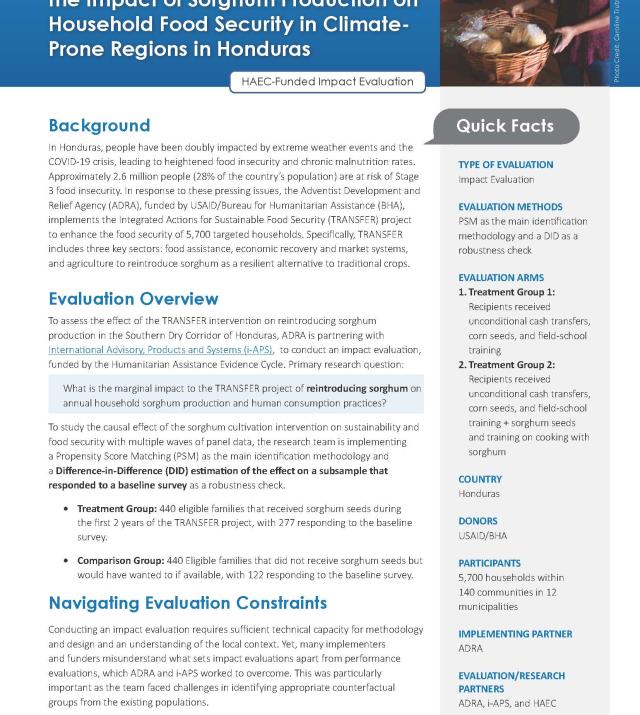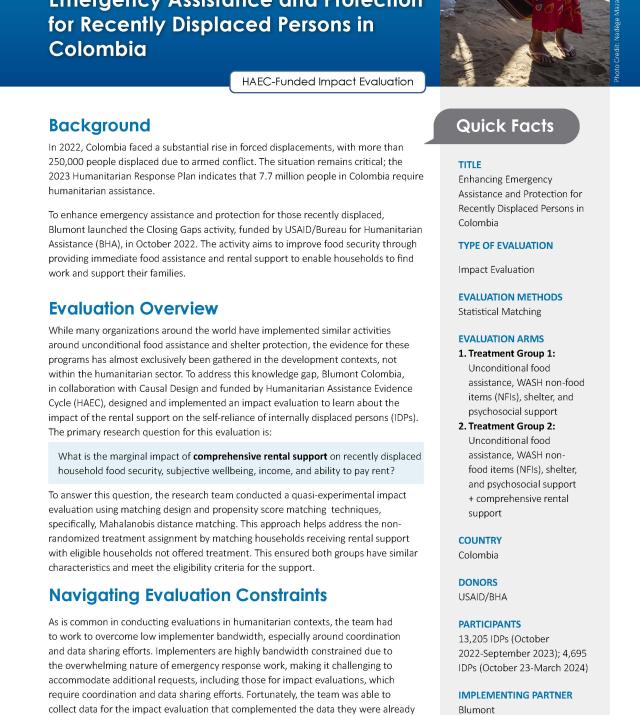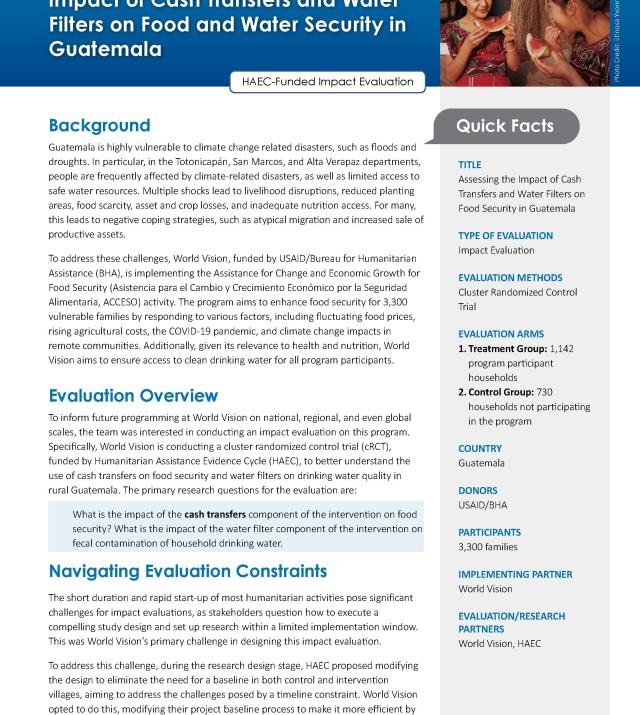
Evaluation in Action: Understanding the Long-Term Impact of Unconditional Multi-Purpose Cash Assistance

The Venezuelan humanitarian crisis is one of the world’s largest displacement crises, with over 8 million people displaced. Colombia currently hosts more than 1.82 million Venezuelans, 60% of whom suffer from poverty and economic vulnerability, putting pressure on host communities and public services. In response to this crisis, the Cash for Urban Assistance Consortium implements the ADN Dignidad program to provide Multi-Purpose Cash Assistance (MPCA) to over 250,000 affected individuals, supporting household consumption and promoting social and economic integration in host communities. This USAID/Bureau for Humanitarian Assistance (BHA)-funded program, implemented by Action Against Hunger (AAH), Danish Refugee Council, and Norwegian Refugee Council, targets vulnerable populations, including Venezuelan migrants, Colombian returnees, Colombian internally displaced persons (IDPs), and mixed migrant host community members. To answer the question of whether the impact of the unconditional MPCA inventions remains over a year after implementation, the team secured additional funding from the Humanitarian Assistance Evidence Cycle (HAEC) to conduct a second round of the impact evaluation.
Check out this brief to learn more!
This brief is part of the Evaluation in Action series by the Humanitarian Assistance Evidence Cycle (HAEC) Associate Award. This series highlights ongoing and recently completed impact evaluations from around the world.
Do you have an ongoing impact evaluation in a humanitarian context that you want to share? Submit it here!

